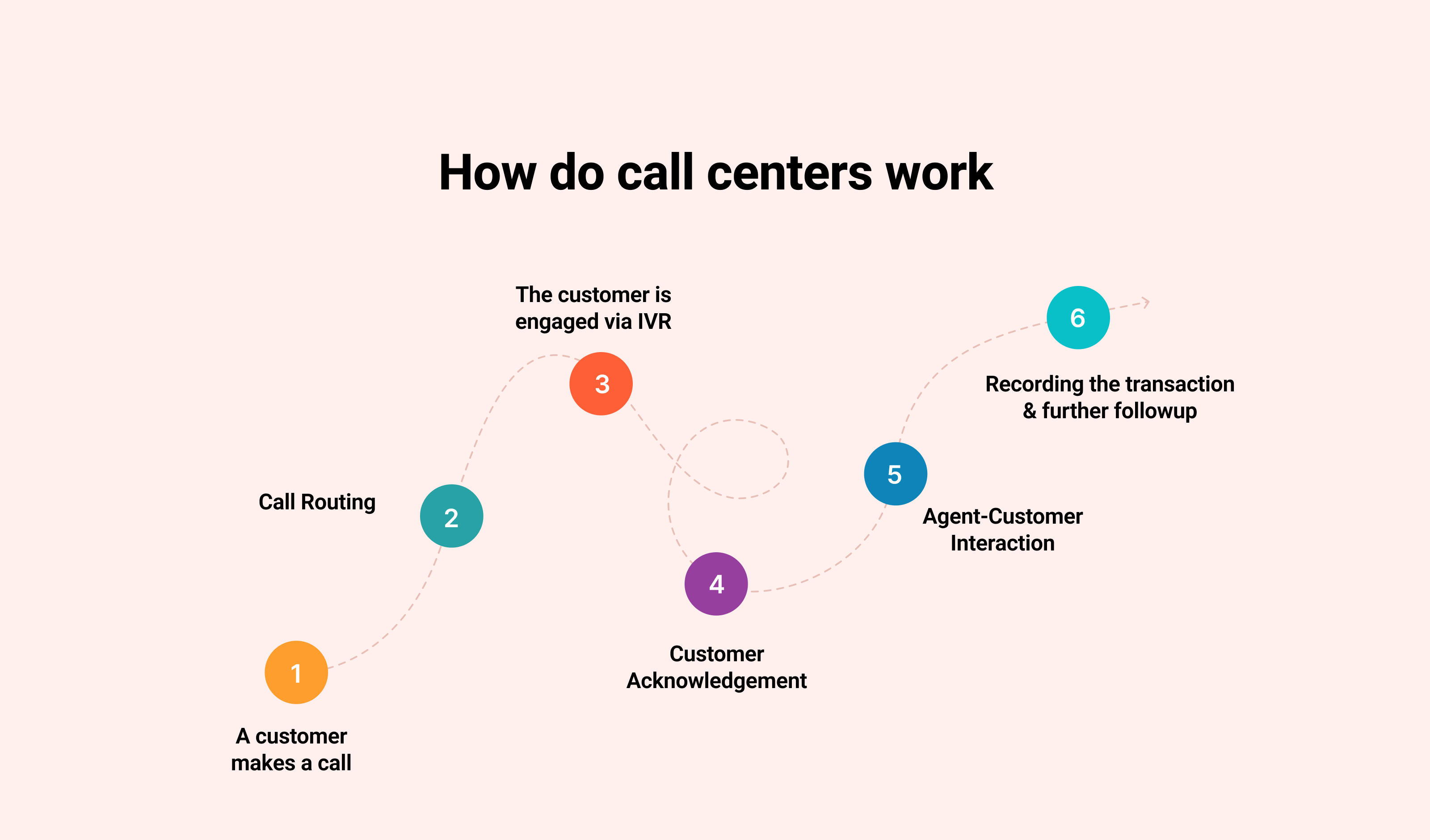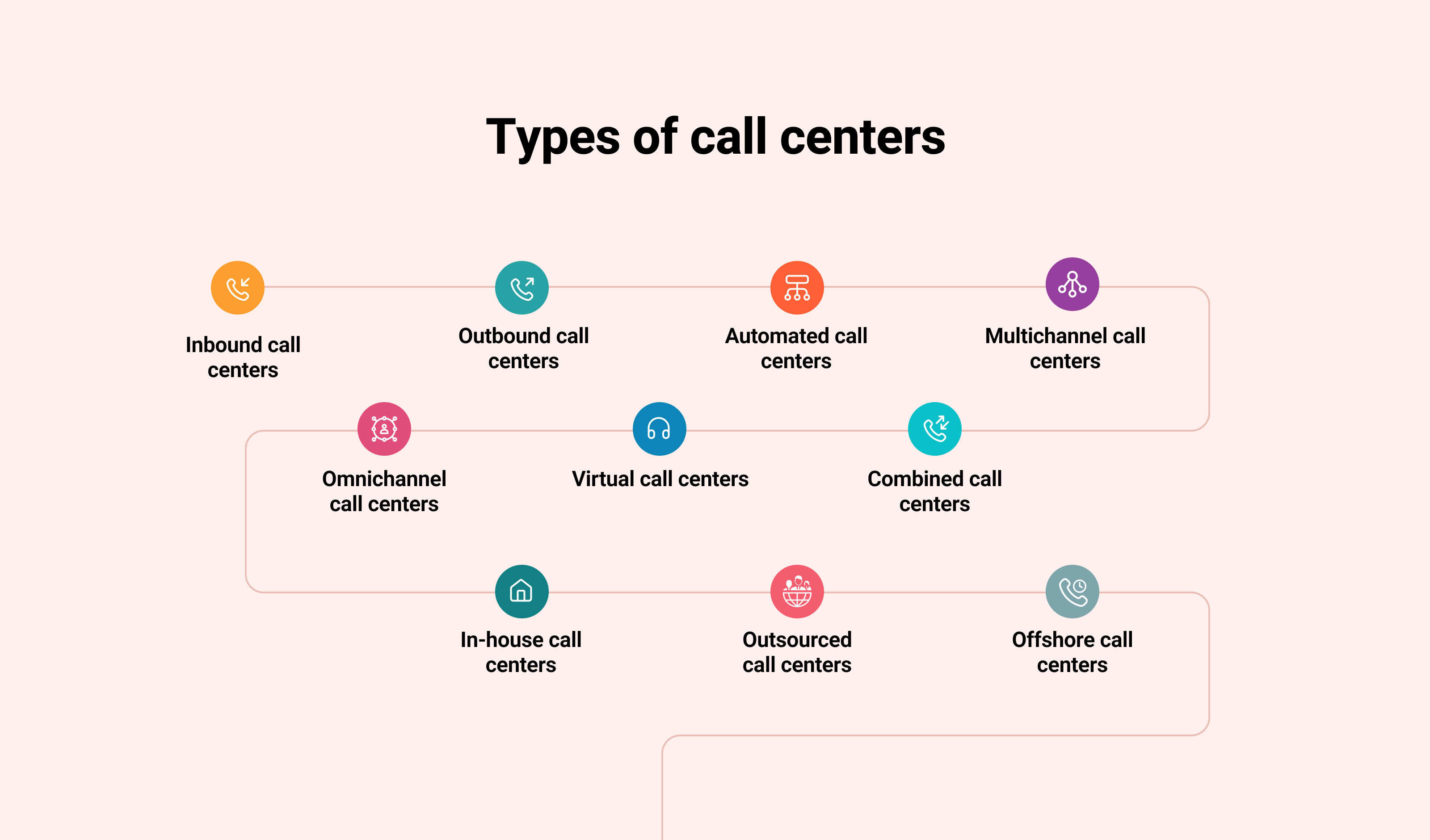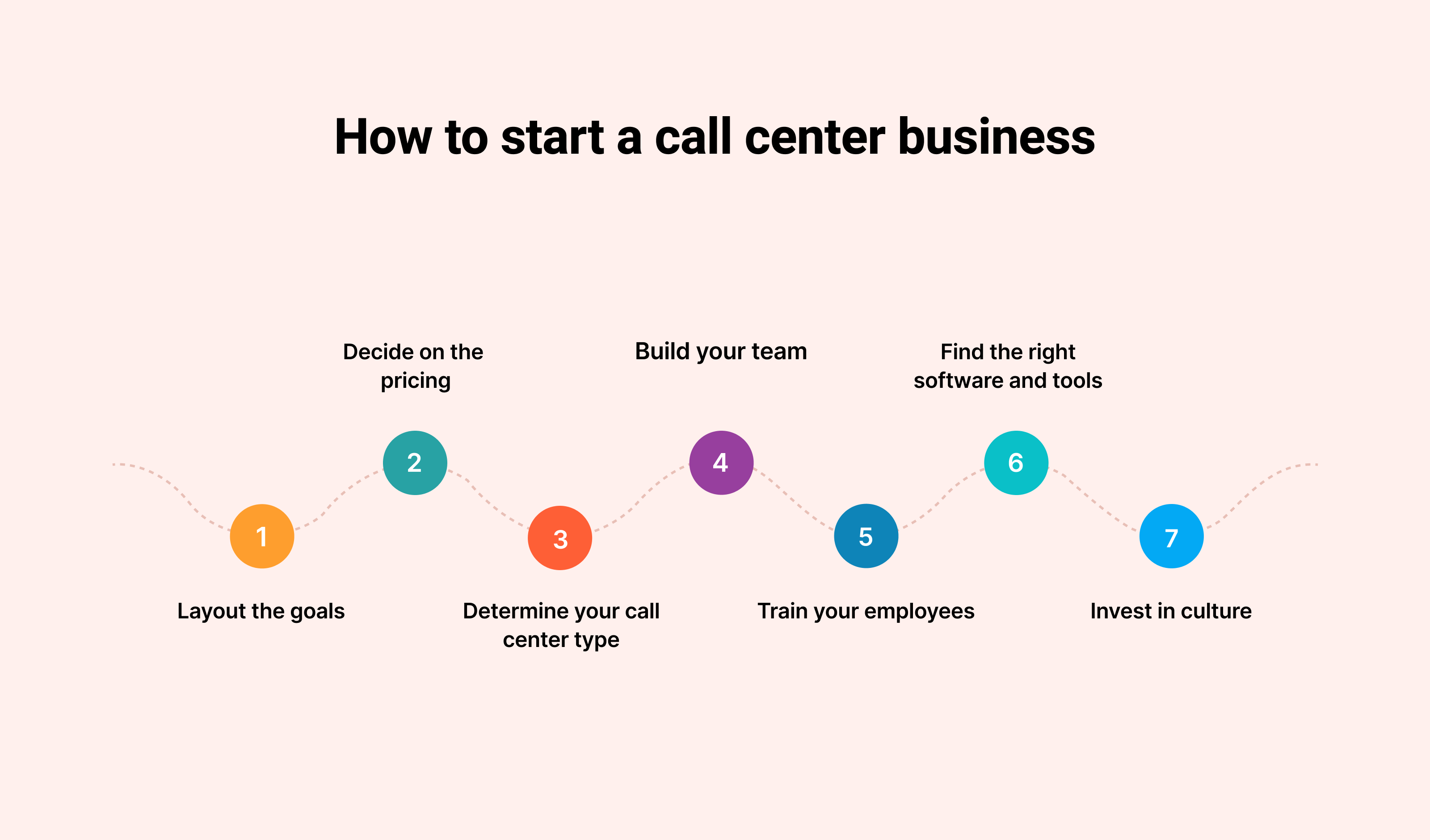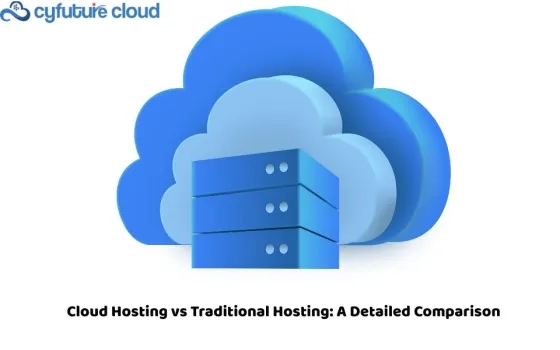
Call centers play a crucial part in engaging customers of different businesses. According to a research report, the Call center software market is expected to grow at a rate of 23.9% CAGR between 2023 and 2030. Call center agents are hired to help customers resolve their issues instantly, regardless of time zones. These people are essential in retaining existing customers and bringing in new customers for the businesses. This blog lets us learn about call centers and their types in detail.
What are Call Centers?
A Call Center is a company or centralized branch that handles inbound and outbound calls from customers. It fulfills a variety of functionalities and acts as a bridge between customers and businesses. They are also an integral part of the company that drives the revenue, generates leads, resolves customer queries, provides answers, and builds a pleasant customer experience.
How do Call Centers work?

Let us learn how do call centers work with an example:
-
A customer makes a call
Initially, a customer with some query or an issue will reach out to the business.
-
Call Routing
The call is routed based on the customer's response, such as language, issue type, etc.
-
The customer is engaged via IVR
Thirdly, Interactive Voice Response requests customers to choose an option from the menu depending on their needs.
-
Customer Acknowledgement
The customer provides the desired response to take the call further.
-
Agent-Customer Interaction
The call is connected to the respective department, agent, or team to resolve the issue quickly.
-
Recording the transaction & further followup
The agent can record the transaction for future use. The customer will also be requested to provide feedback to enhance the business and agent performance. Agents will also make relevant follow-up calls to customers when required.
Types of call centers:

As the name suggests, these call centers are responsible for handling incoming customer calls. These inbound call centers address common issues such as customer questions, problems, technical support, payments, renewals, etc.
In contrast, agents at Outbound call centers reach out to prospective customers. They come with automated dialers that ring a list of numbers and route the call to the respective agent when the customer picks up the call. They are primarily used for sales, telemarketing, customer retention, market research, driving leads, phone surveys, etc.
Automated call centers use computer-based systems to manage caller responsibilities. This computerized approach can eliminate additional costs for businesses as it reduces the need for human interaction. These call centers offer services such as answering common questions, managing voicemails, helping customers find business locations, etc.
Although phone calls are a significant part of call centers' interactions with customers, Multichannel call centers expand their services across different communication channels to engage customers. Hence, call center agents will be responsible for speaking with customers through various channels such as phones, emails, faxes, etc.
Omnichannel call centers are similar to multichannel call centers, but the difference is that all communication channels are available on a single platform. Hence, agents can easily interact with customers without switching between applications. This saves time, increases productivity, and improves customer satisfaction.
Virtual call centers allow agents to work from anywhere, provided they have stable internet-connected devices such as smartphones, laptops, desktops, and tablets. They are less expensive, promote a remote-friendly environment, and are easy to manage. They handle both inbound and outbound customer calls and have eye-catching features.
Combined call centers combine inbound and outbound call centers. They cover everything from sales to marketing to support. Businesses that want to utilize both functionalities will opt for a combined call center to cater to customers' needs and grow their business simultaneously.
In-house call centers are the ones where businesses can manage customer calls with their agents. The company employs customer service representatives, takes care of their onboarding, and provides the required training and the essential equipment to get started with their work. These call centers require significant investment, which may become cheaper in the following years.
If the company is looking for a budget-friendly investment and an alternative to in-house call centers, these outsourced call centers are an excellent option. The services are outsourced to third parties responsible for managing both inbound and outbound customer calls such as resolving customer queries, answering their questions, scheduling appointments, lead generation, etc.
Offshore call centers are subsidiaries of Outsourced call centers. Here, the call centers may work overseas in regions such as Europe, Asian countries, etc., where the prices are cost-effective while the call center agents are talented and professional. However, language can be a challenging factor here between customer support agents and clients. Hence, only qualified agents who know different languages are taken carefully during the interview.
How to start a call center business?

-
Layout the goals
Knowing the business goals and needs is vital right off the bat. You can begin by jotting down the requirements and objectives to run the call center successfully. If you are a startup or a small business, you can consider lead generation and other approaches to streamline the workflow. You can also consider customer satisfaction as another goal.
-
Decide on the pricing
Next comes the budget. Figure out how much money you can invest to start a call center. With that, you can determine details such as the number of employees to be hired, the size and location of the business, the type of technology and tools to be used, etc. Also, when deciding on the pricing, you should also compile monthly income sources, fixed costs, and variable expenses to get a feasible idea.
-
Determine your call center type
As we have discussed the types of call centers, it is your time to decide which one will be the best fit for your customers, budget, call center agents, business goals, etc. As it is an internet era already, most modern businesses are now migrating towards virtual call centers as they provide advanced features with enhanced productivity and customer satisfaction at budget-friendly pricing.
-
Build your team
Now is the time to create a strong team, as they are the pillars of your business. Make sure you hire the best people by considering these questions: “Will they be able to work flexible hours? How much prior experience should they have? Should they be a king in lead generation?” etc. You can consider candidates who provide positive responses to these questions.
-
Train your employees
Ensure your employees are fully trained and equipped to work in any situation and handle any type of customer and their queries. You can provide agent training by performing these online or offline sessions on physical premises. Also, train your agents on any headsets and phone systems that your company uses.
-
Find the right software and tools
The next step is to find the relevant tools and software to help your business grow. There are a lot of tools and software on the market; you have to figure out the one that best meets your requirements and try it out for your business.
-
Invest in culture
Working at a pleasant and employee-friendly call center can make both business and call center representatives successful. To do that, you should provide importance to maintain a supportive call center culture. You can make your team feel supported by maintaining a calm gesture when handling issues with employees, reaching out to them on a regular basis if they are facing any challenges, providing the required training, etc.
Conclusion:
In the era of phones, emails, texts, and social media, where everything is at the tip of our hands, resolving a query is complex-free. Customers will reach out to you during adverse situations, and it is the responsibility of the business to resolve them quickly and gain their satisfaction. Moreover, the purpose of call centers is also to enhance their satisfaction. Don’t wait to invest in the right call center by analyzing the needs and budget of your business.





















